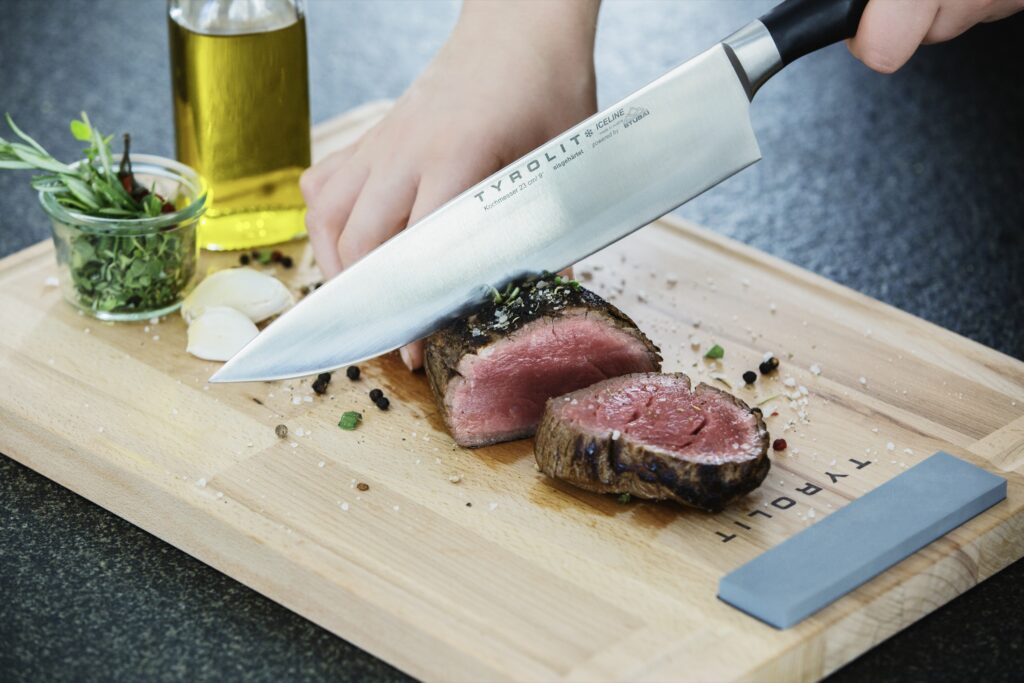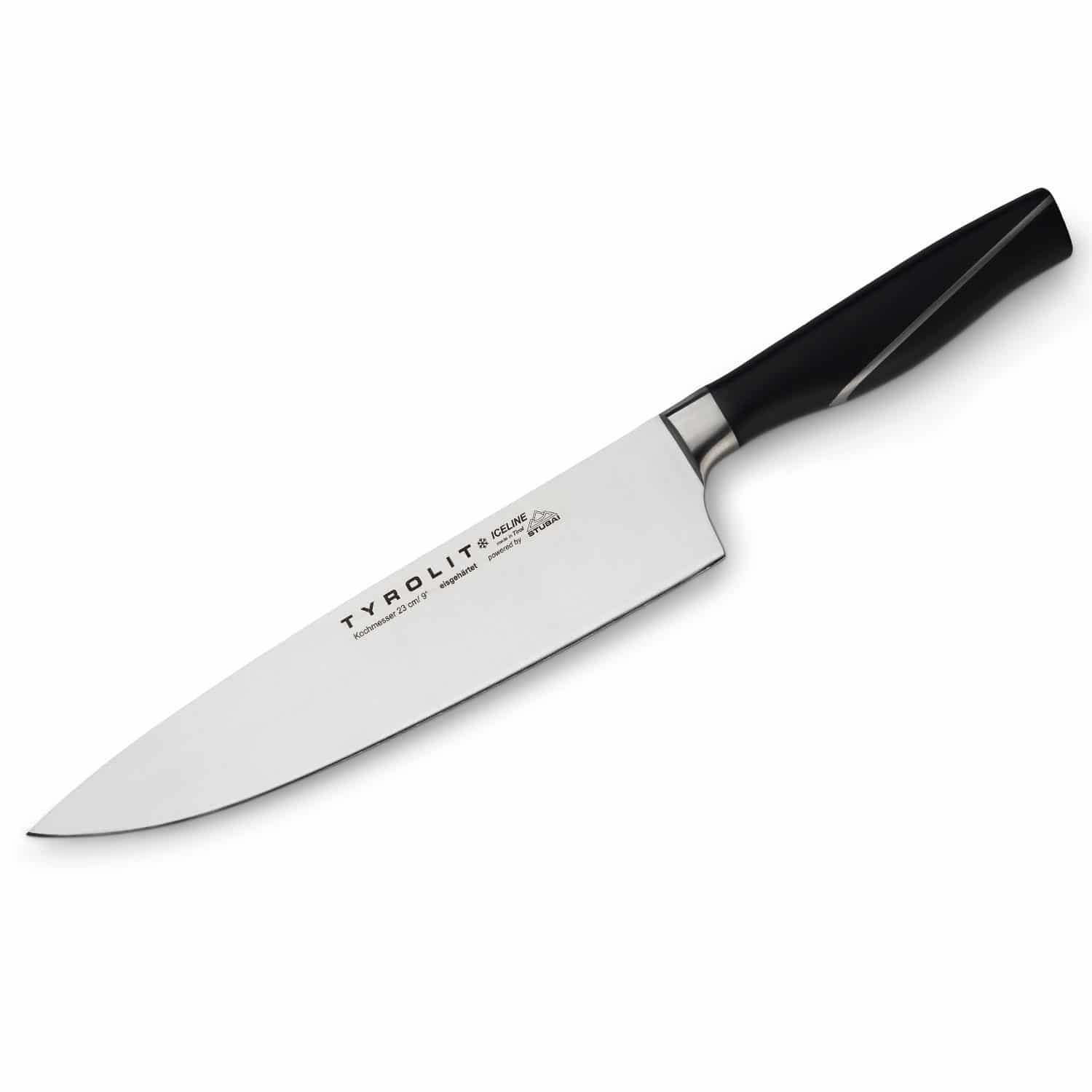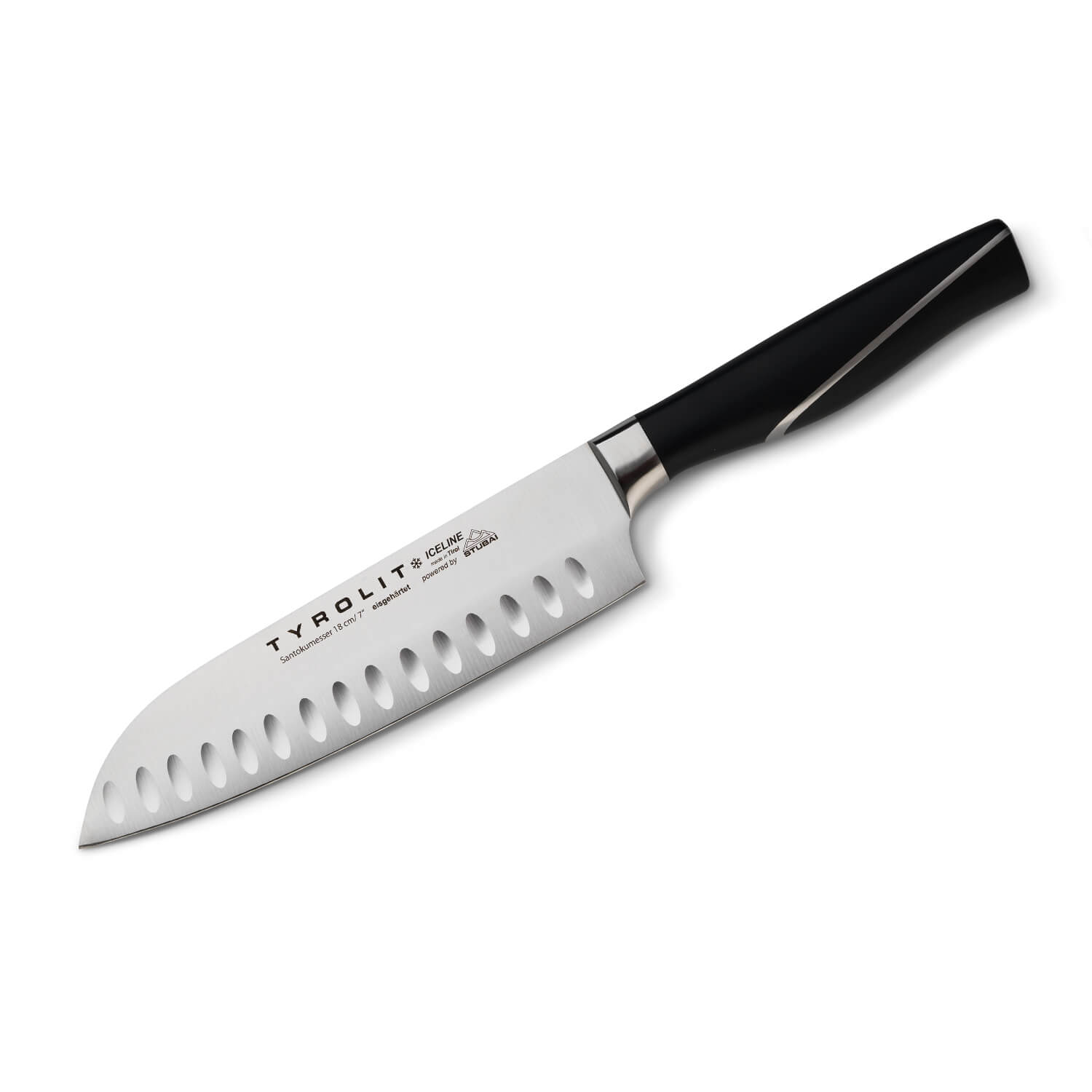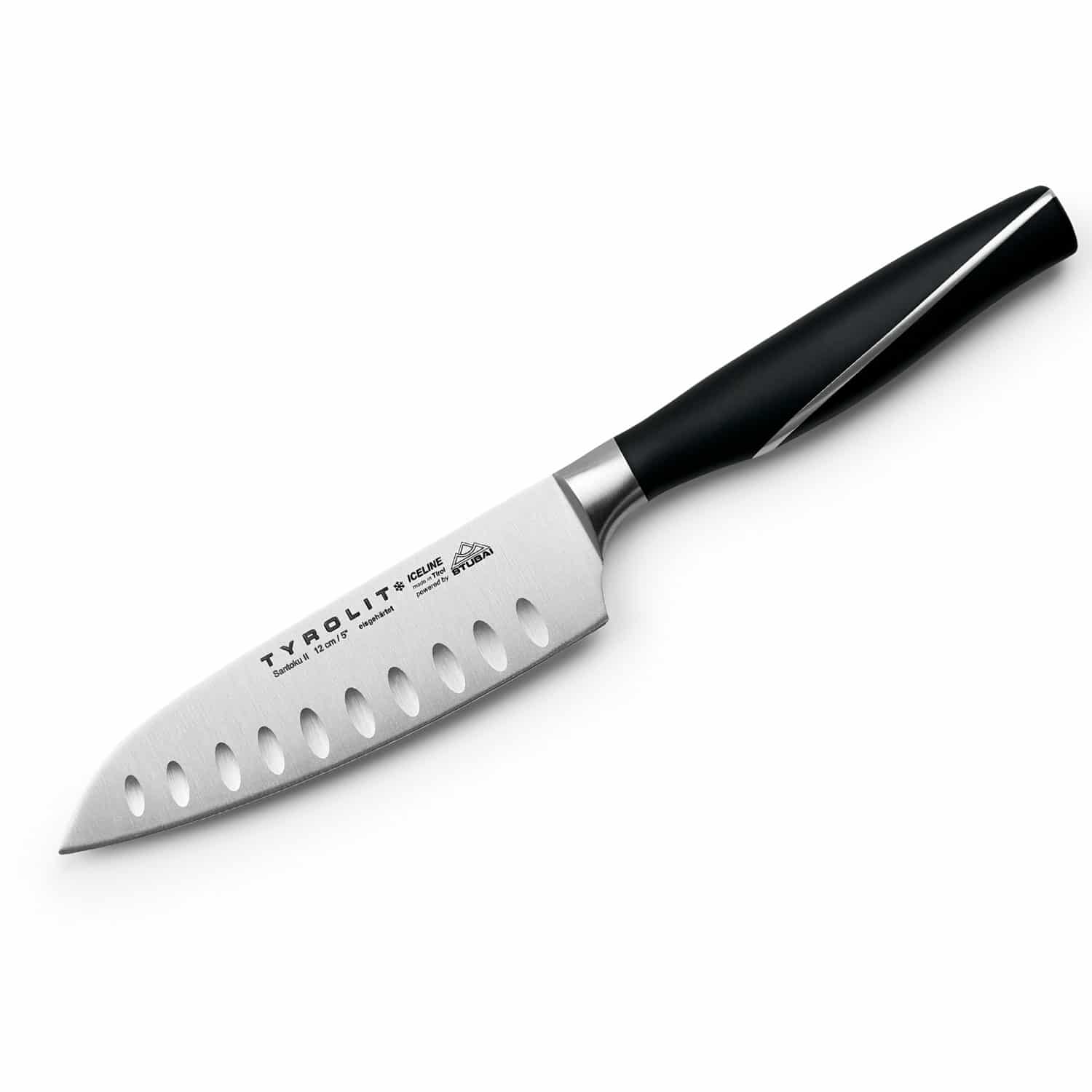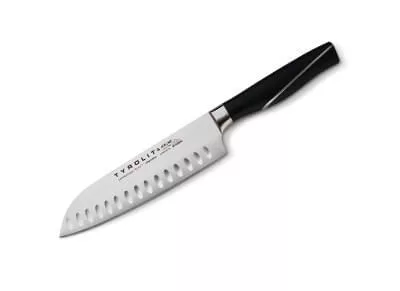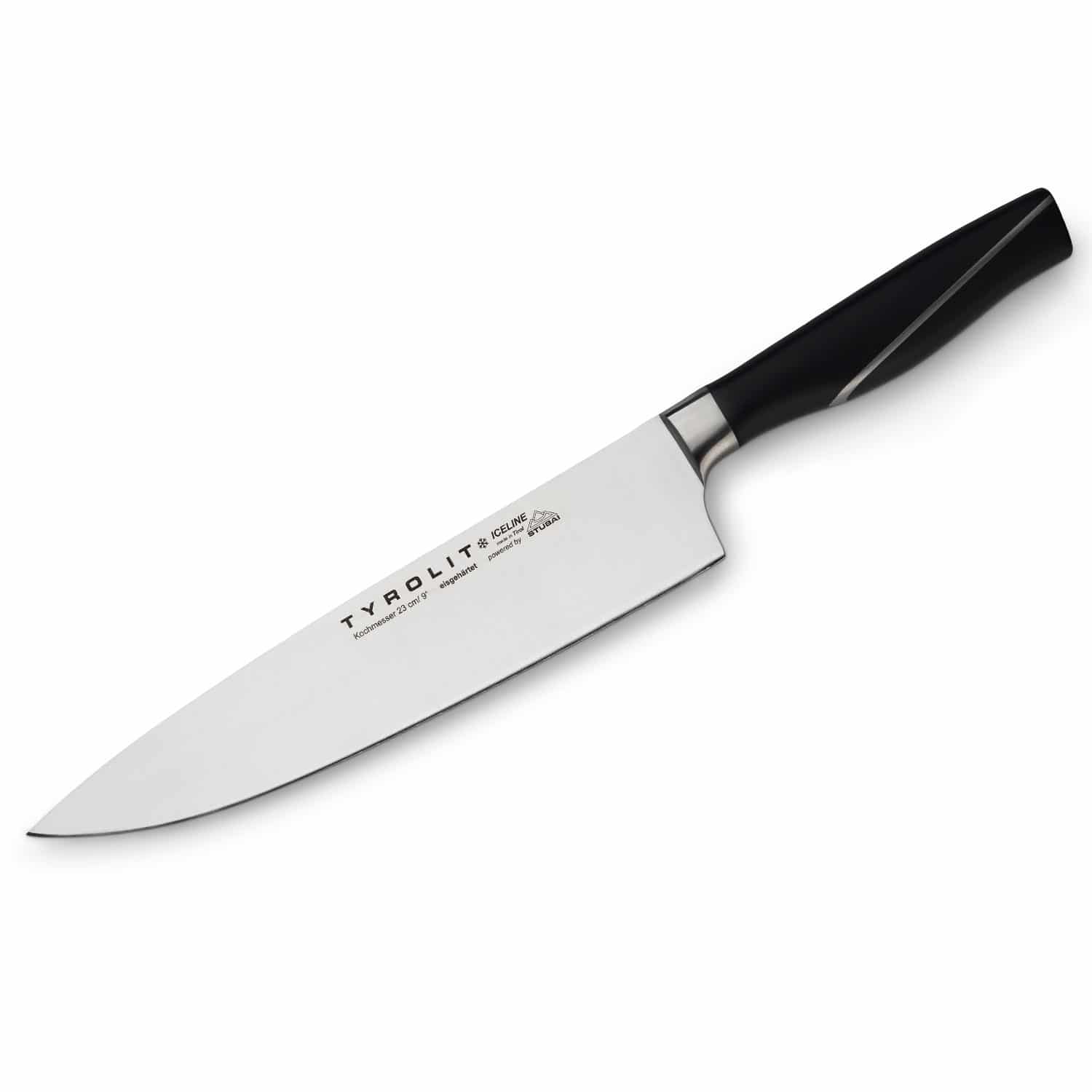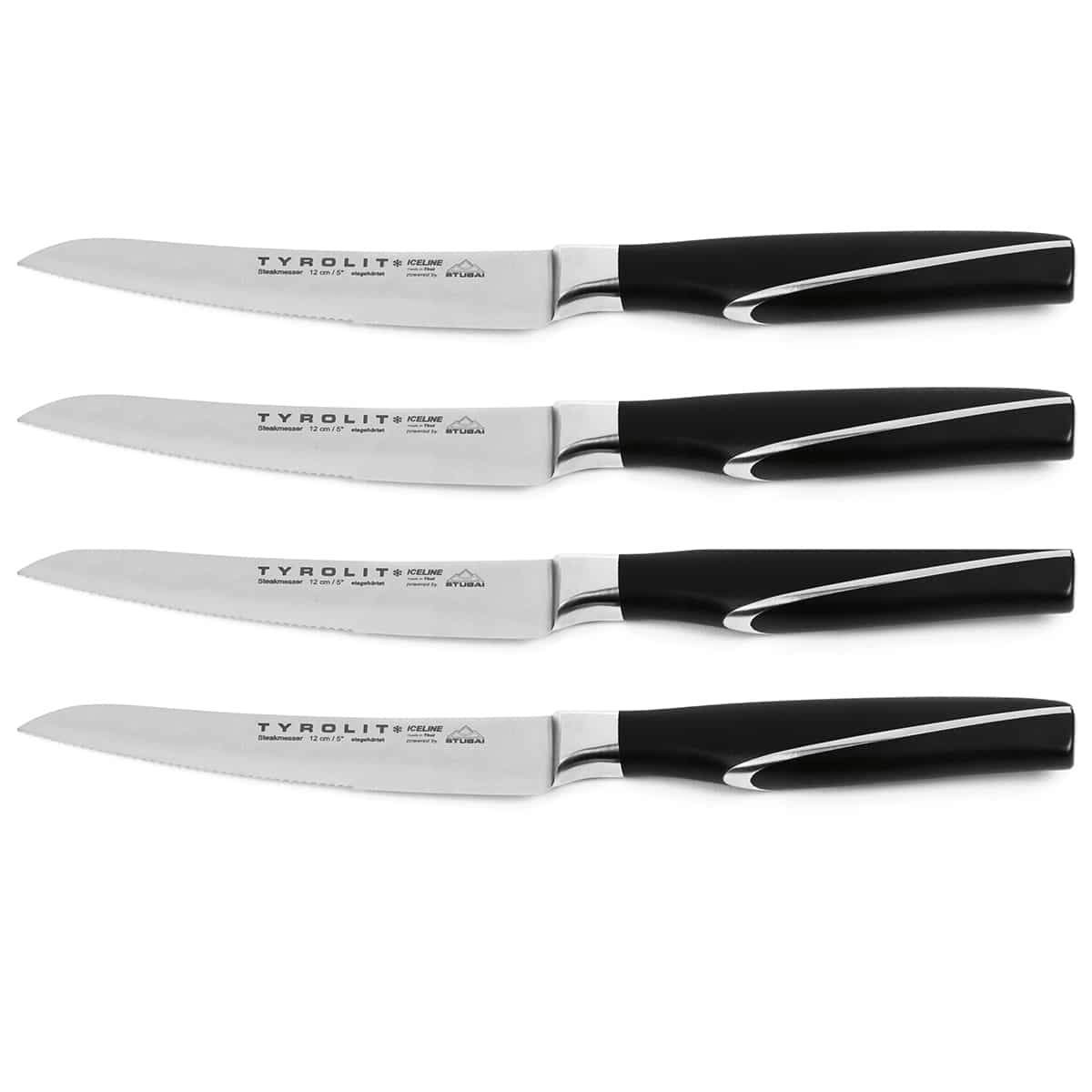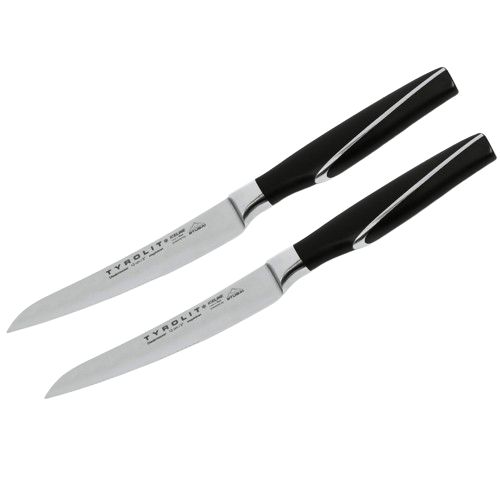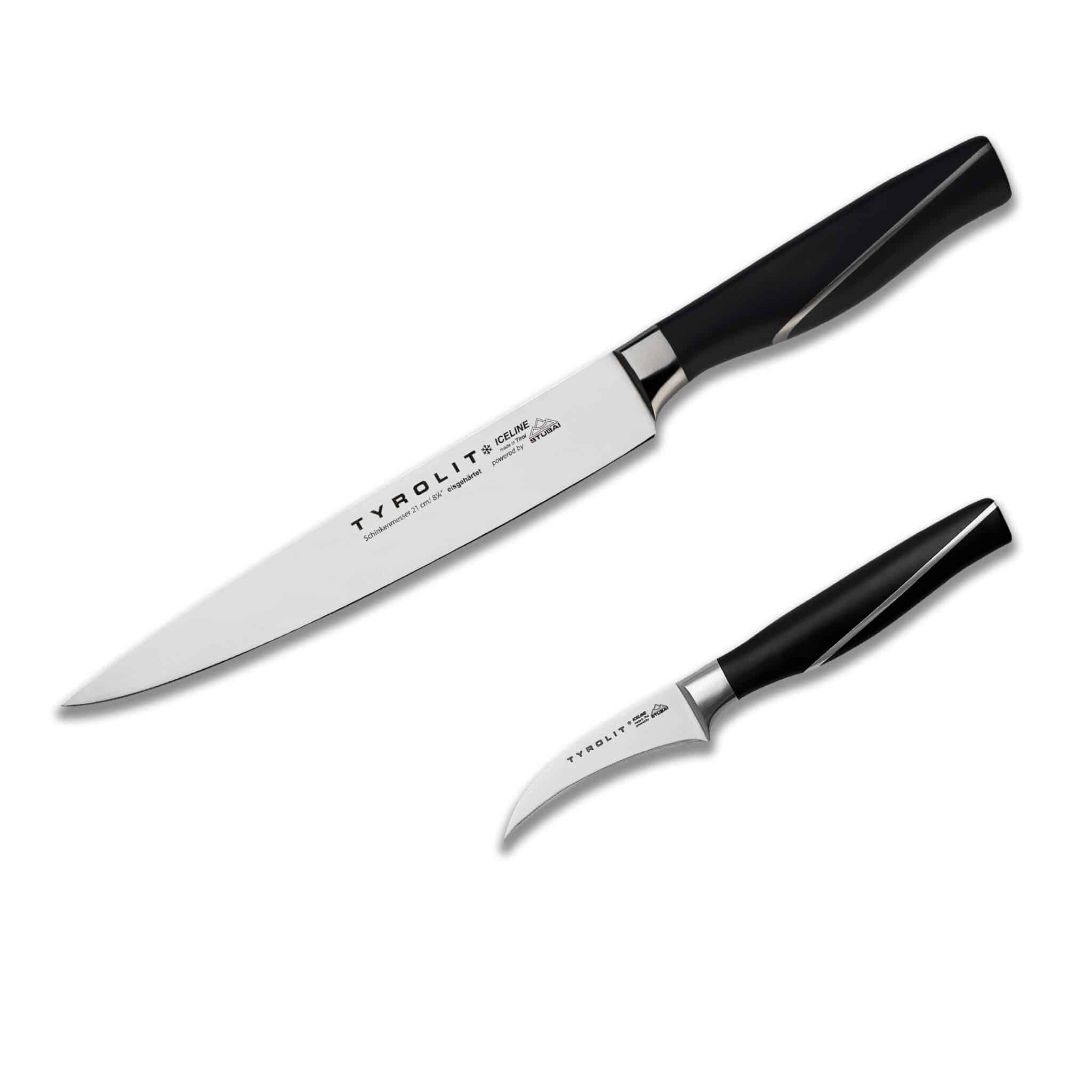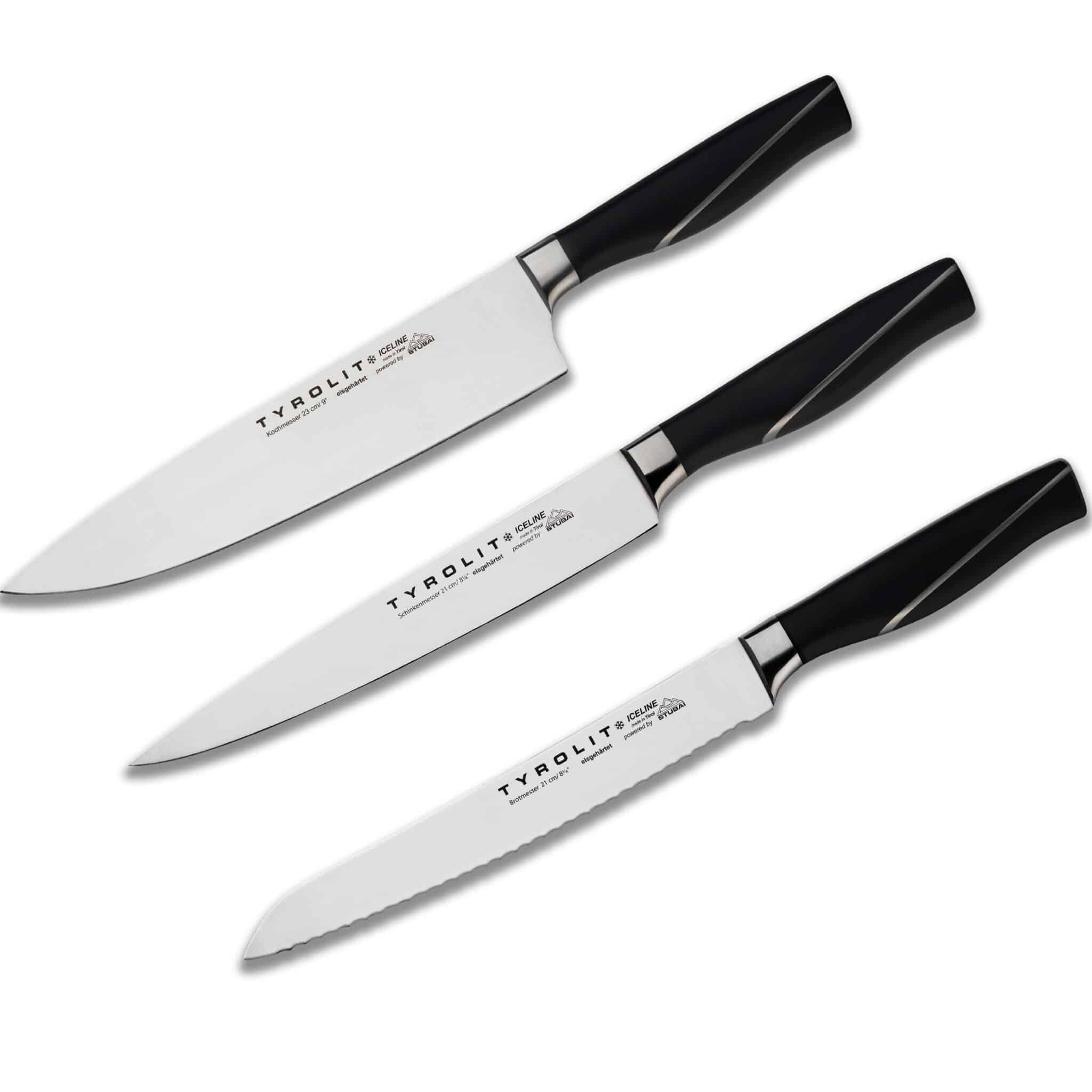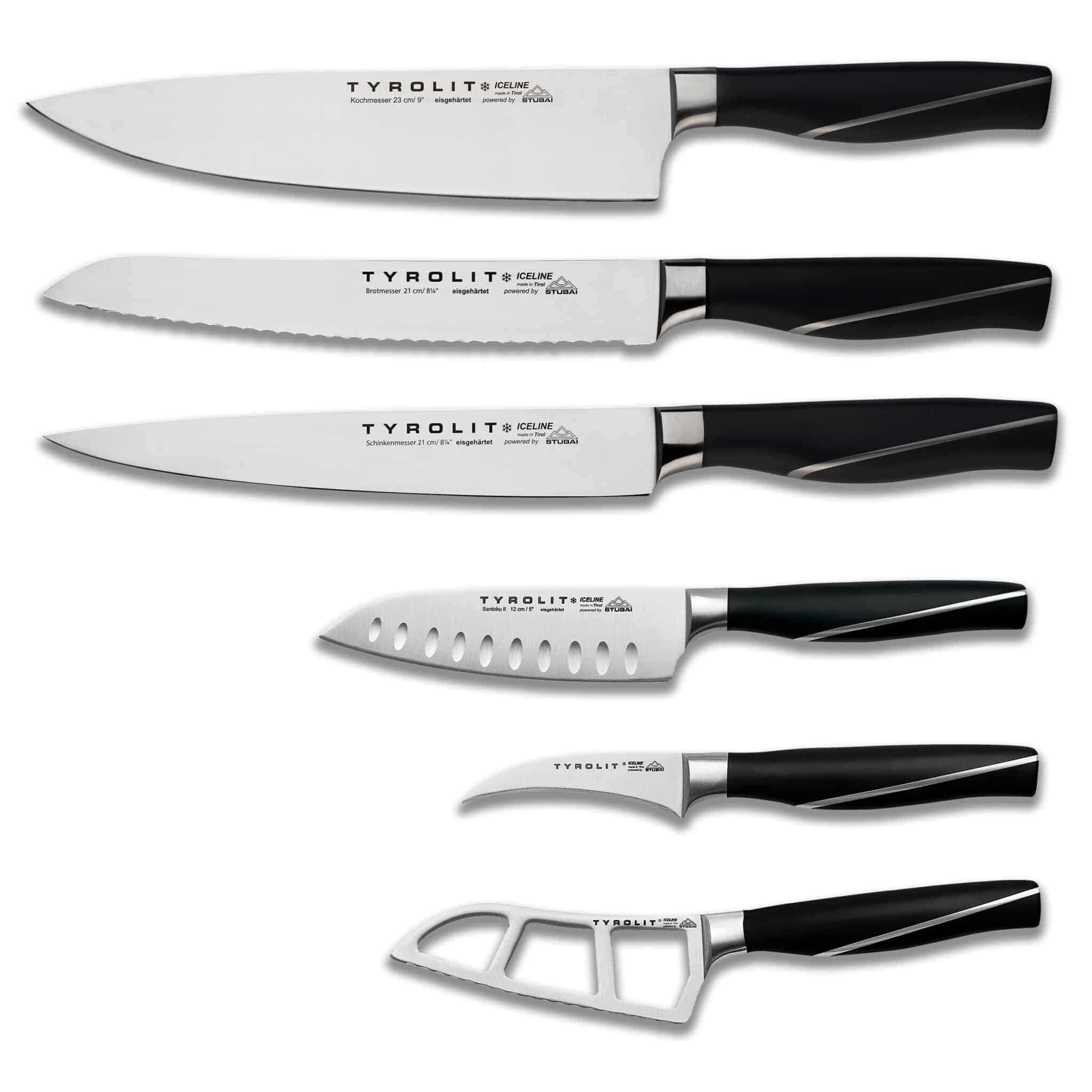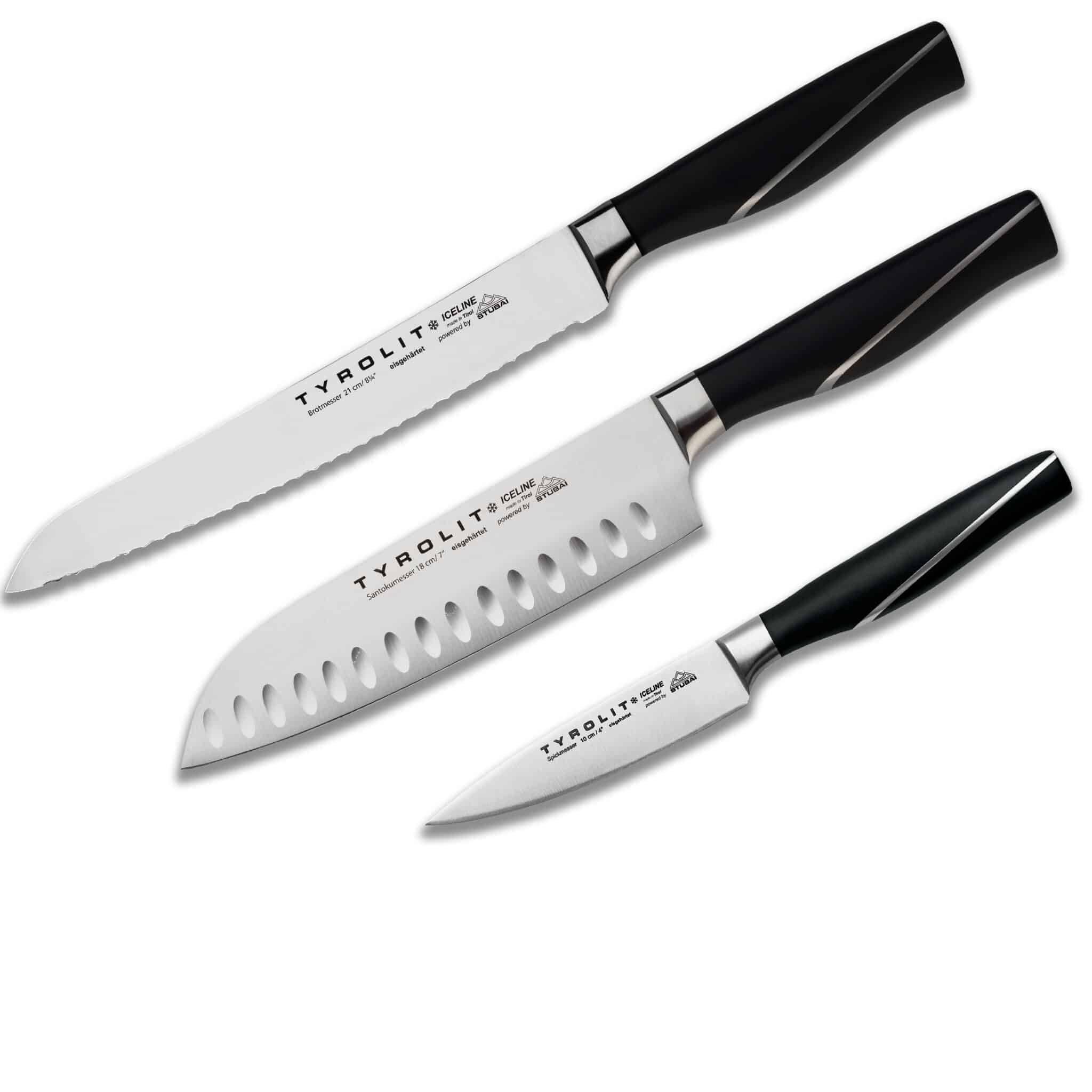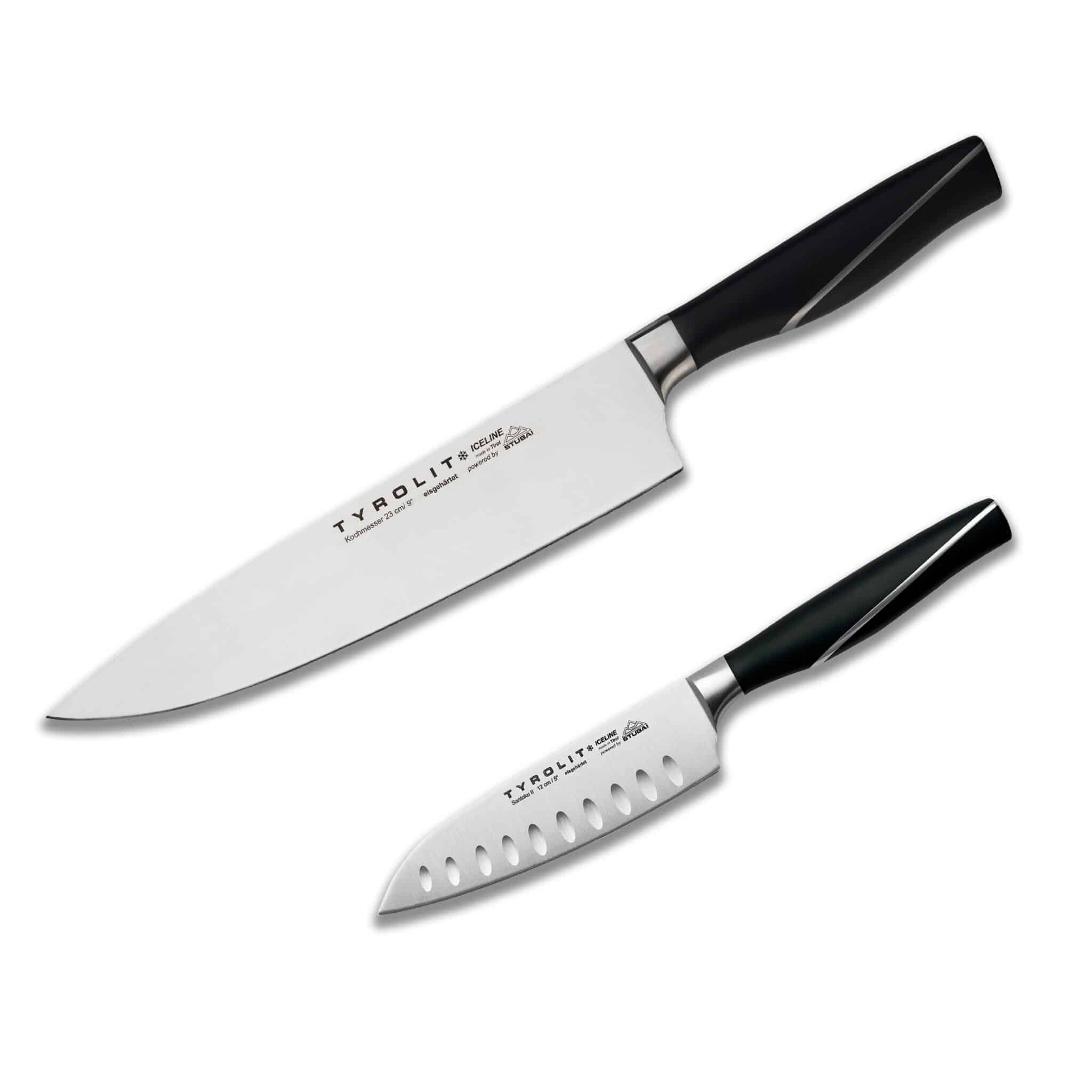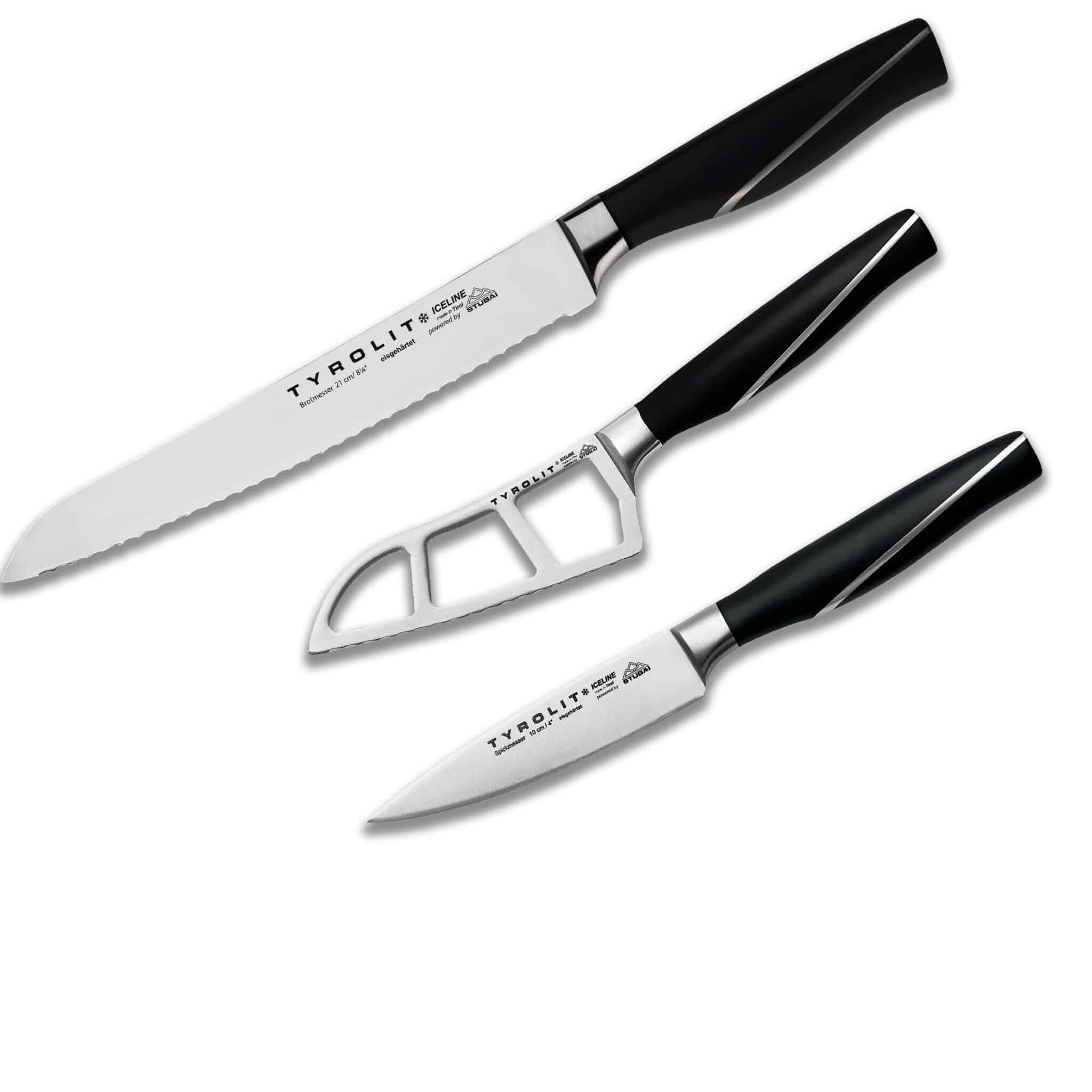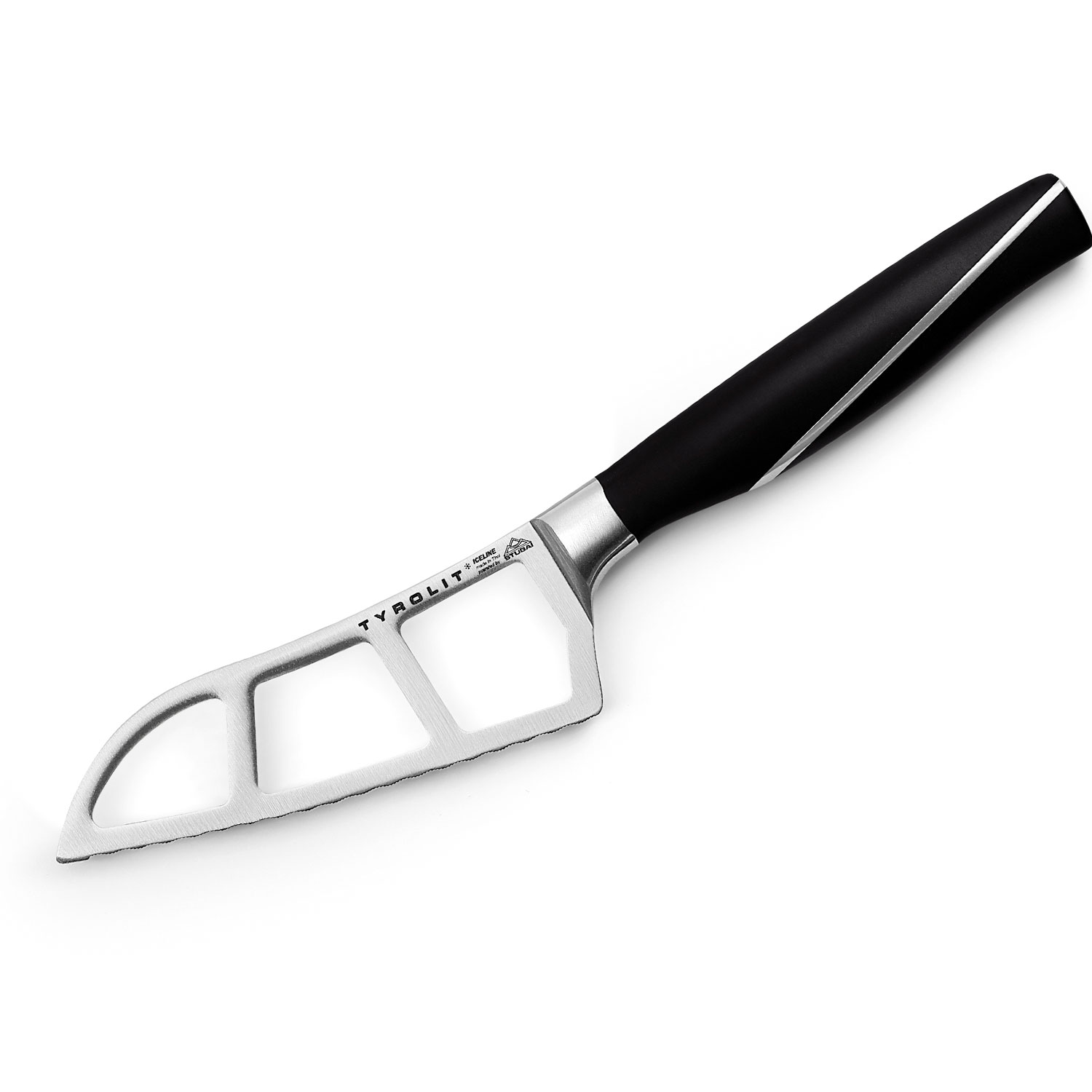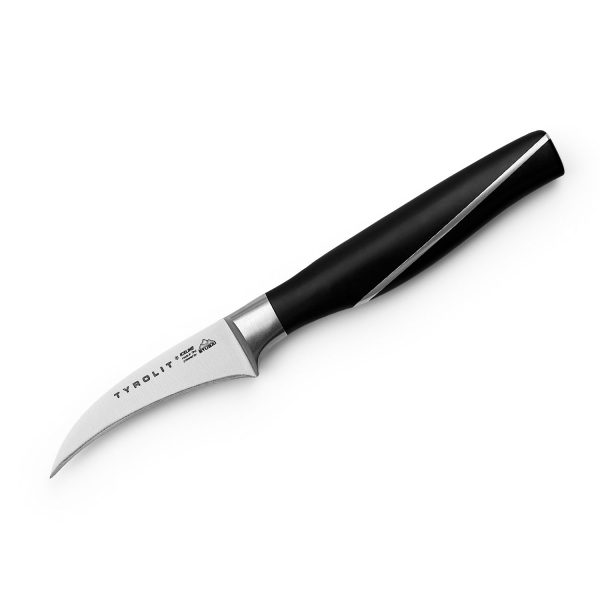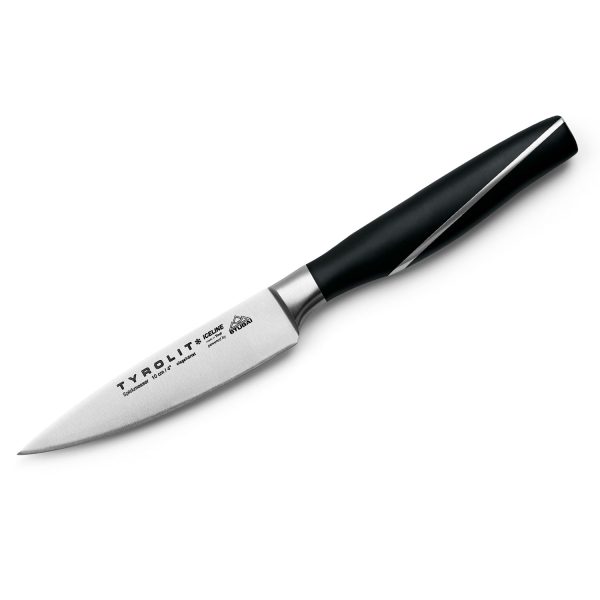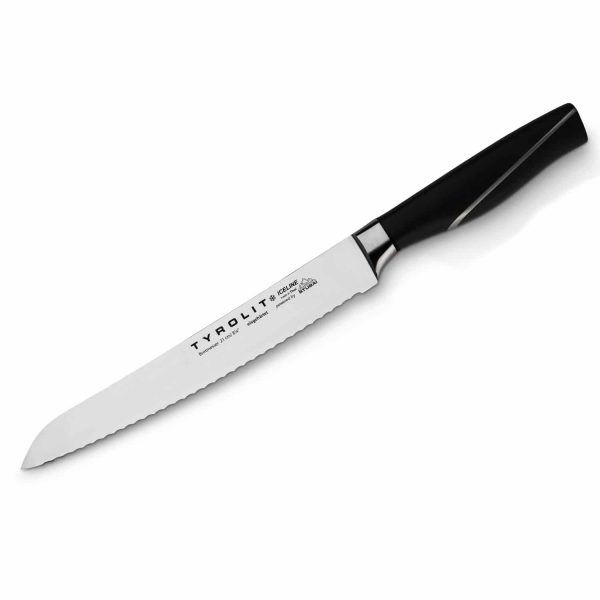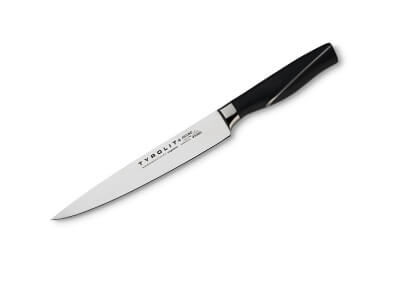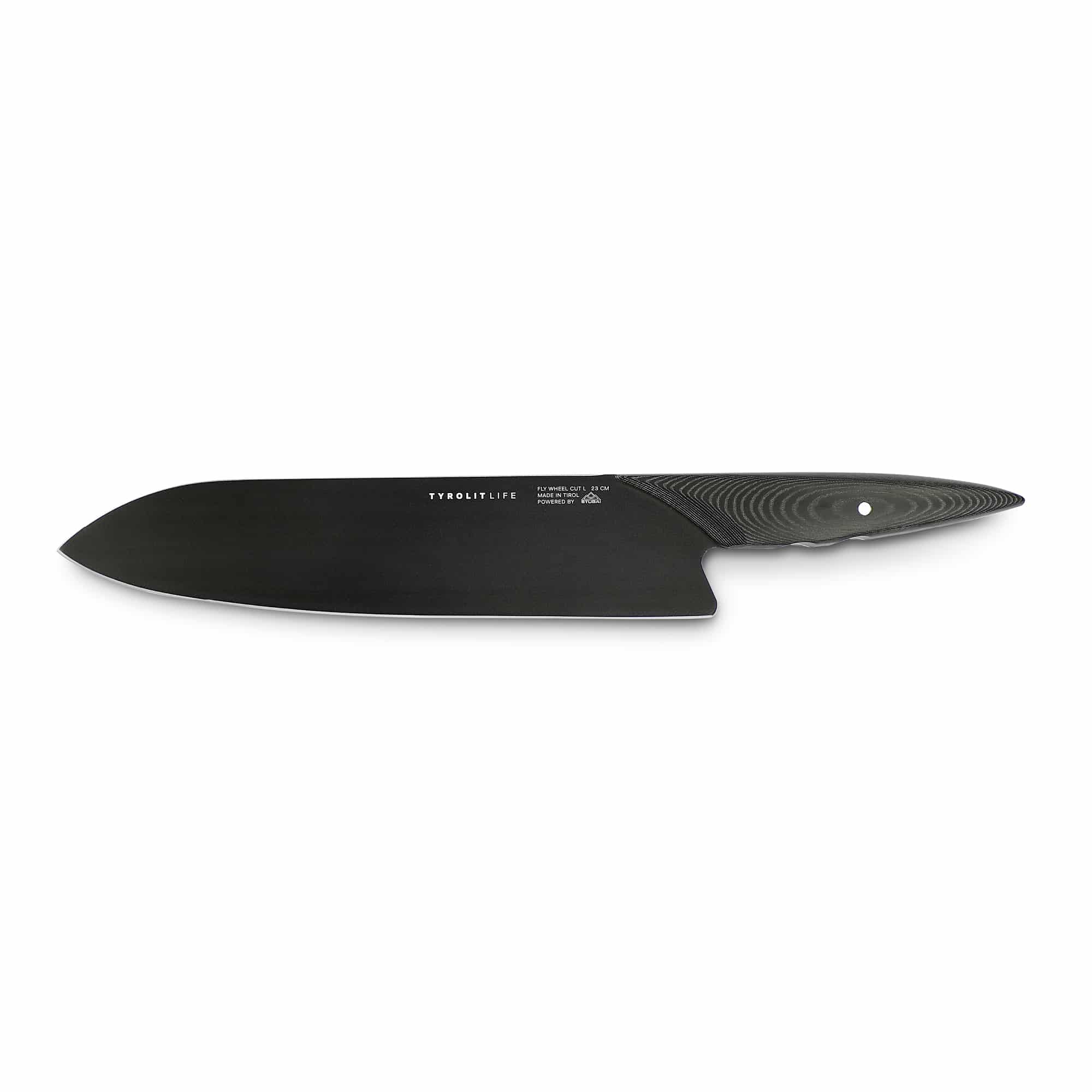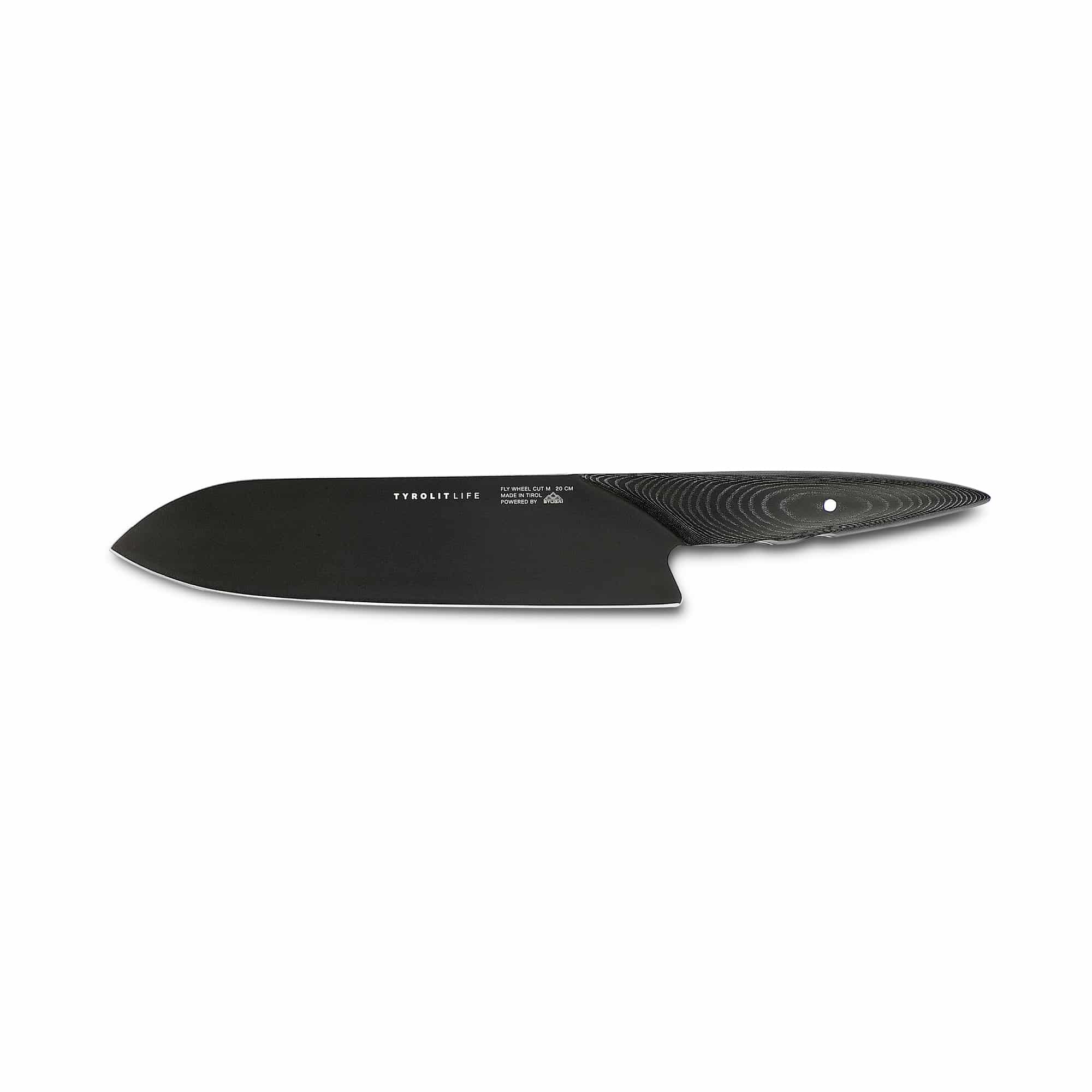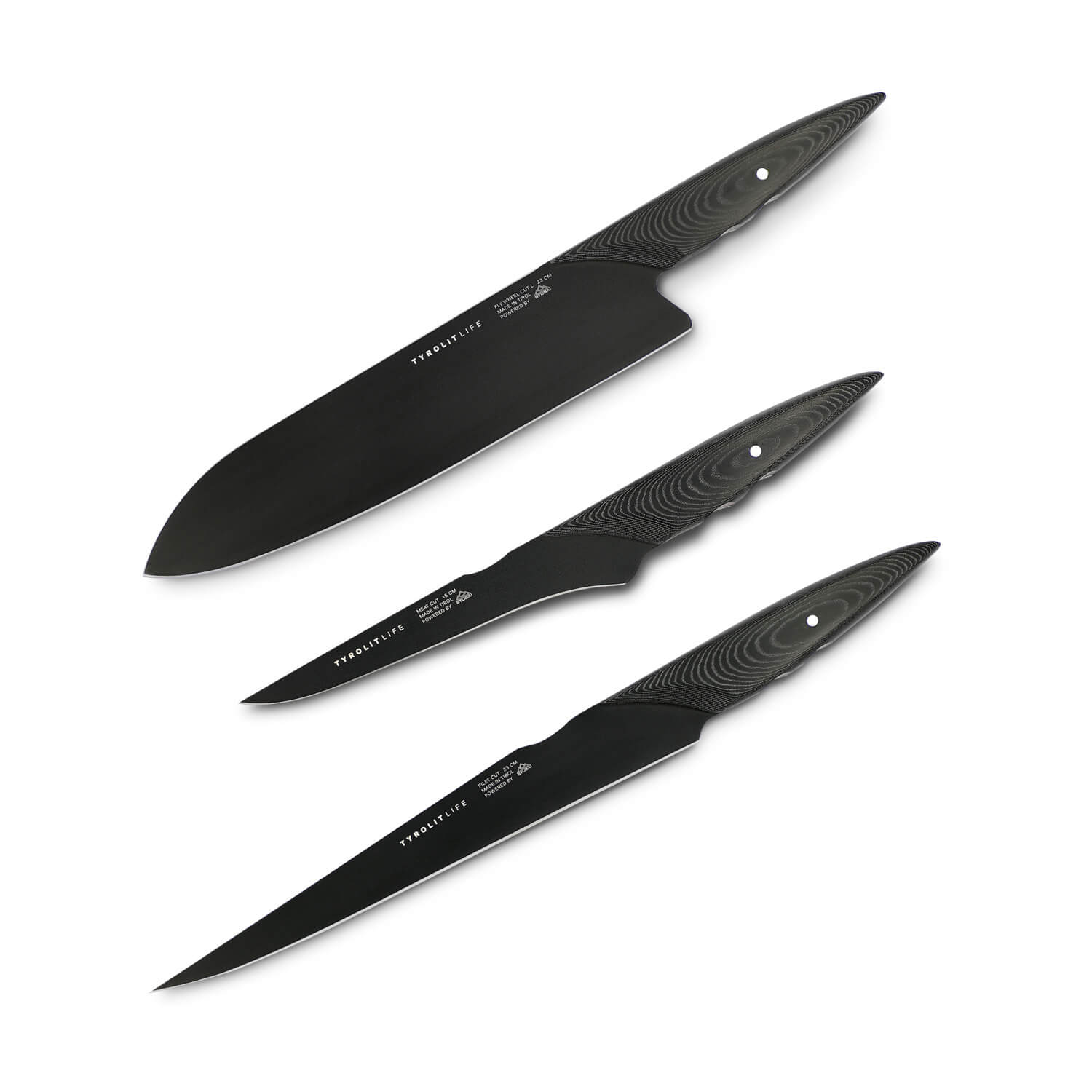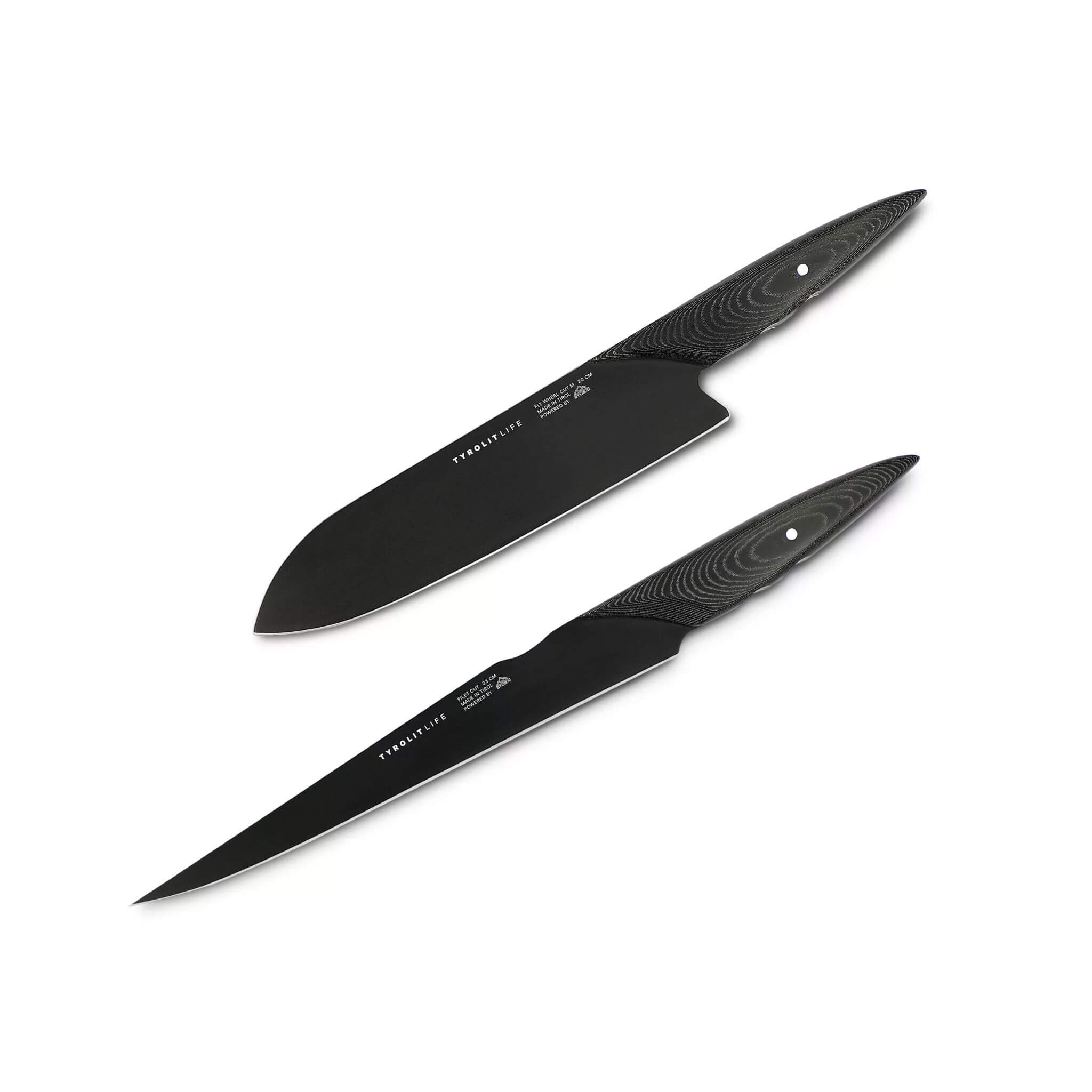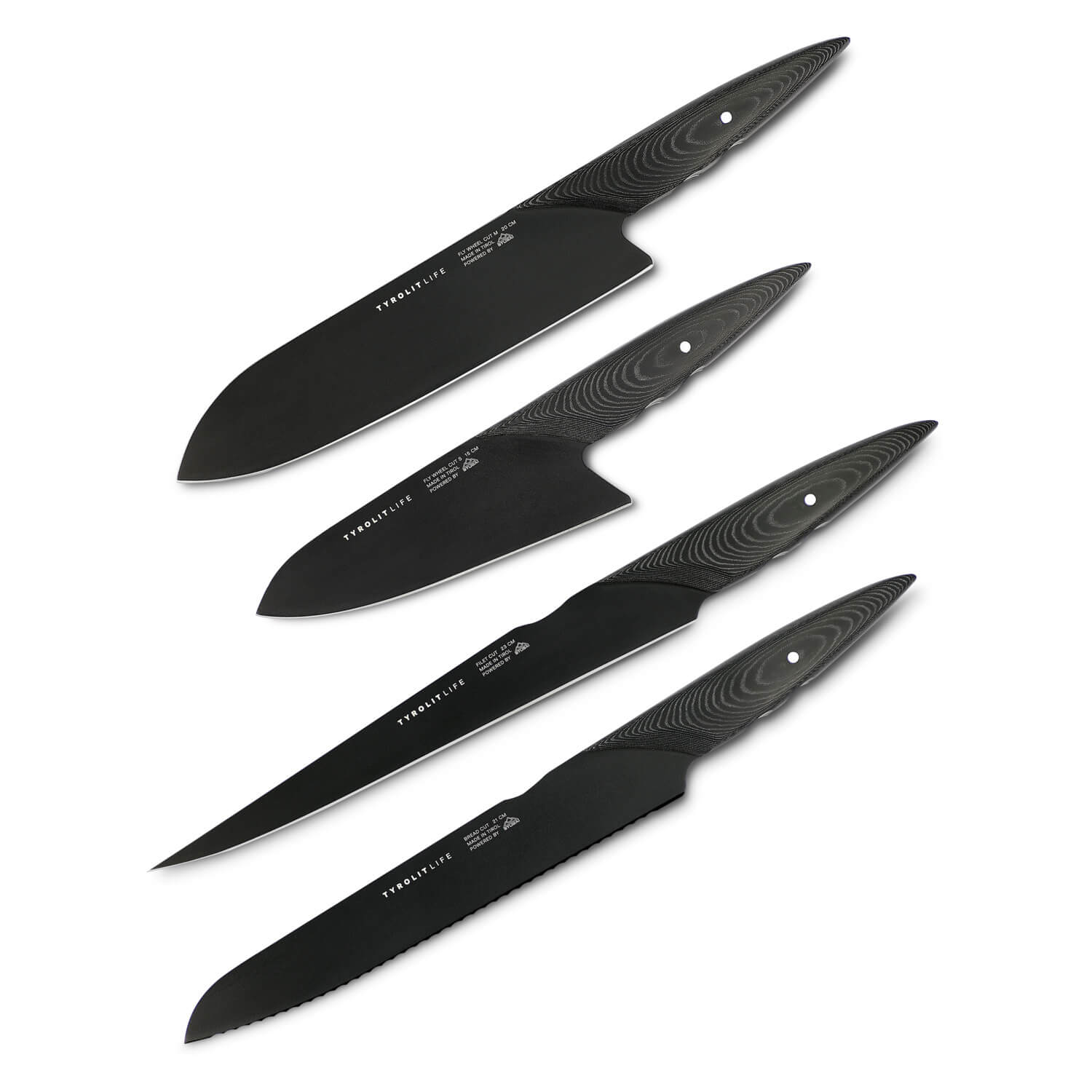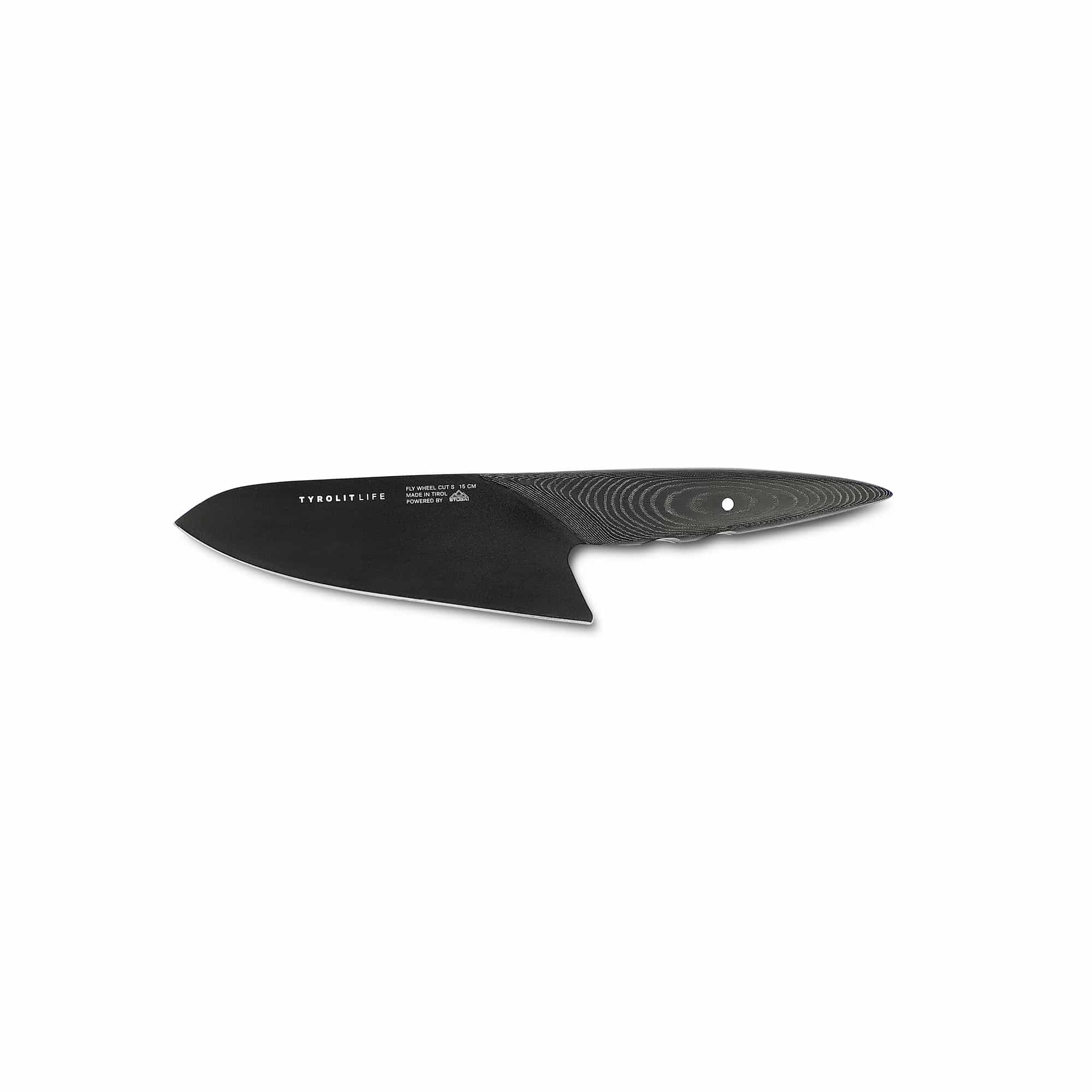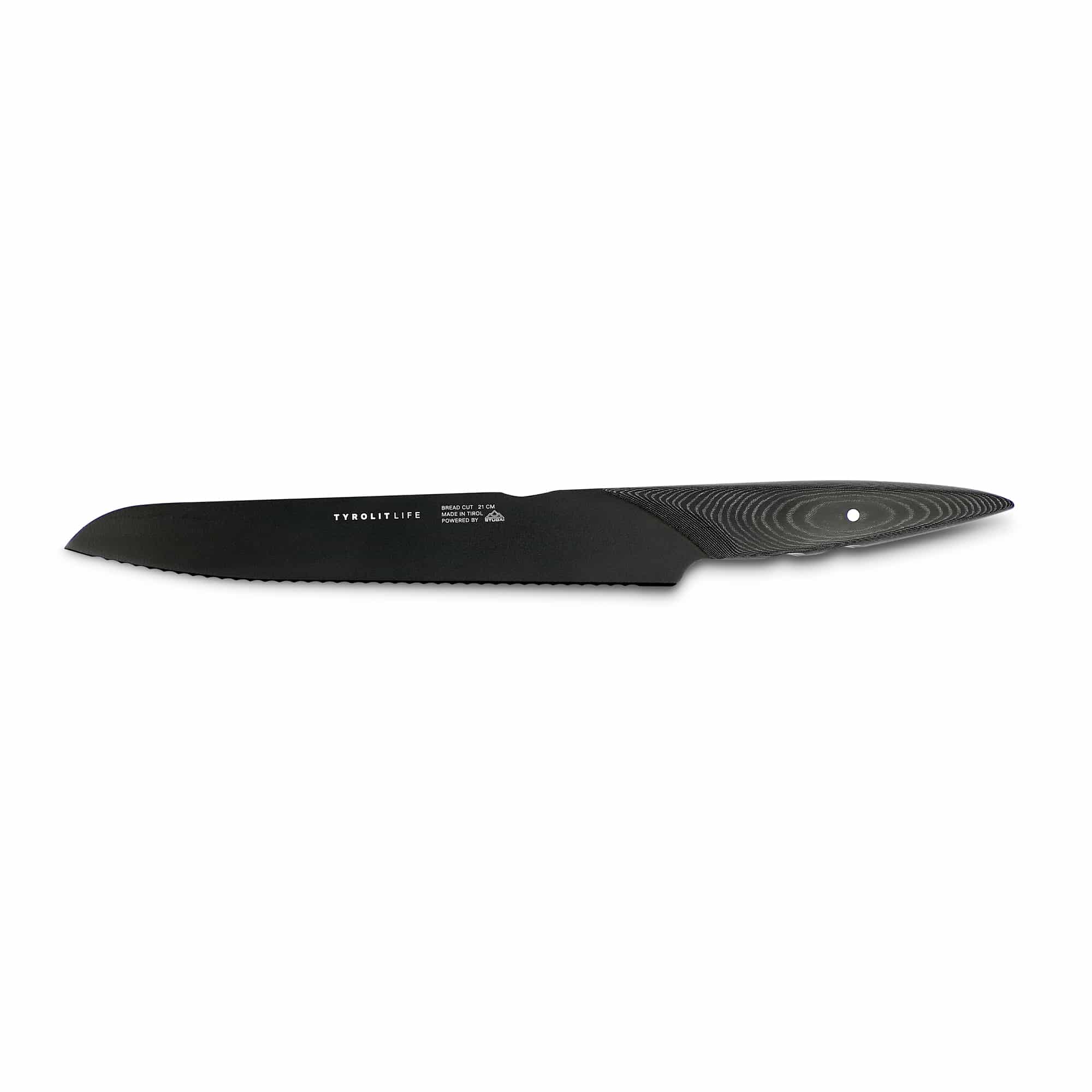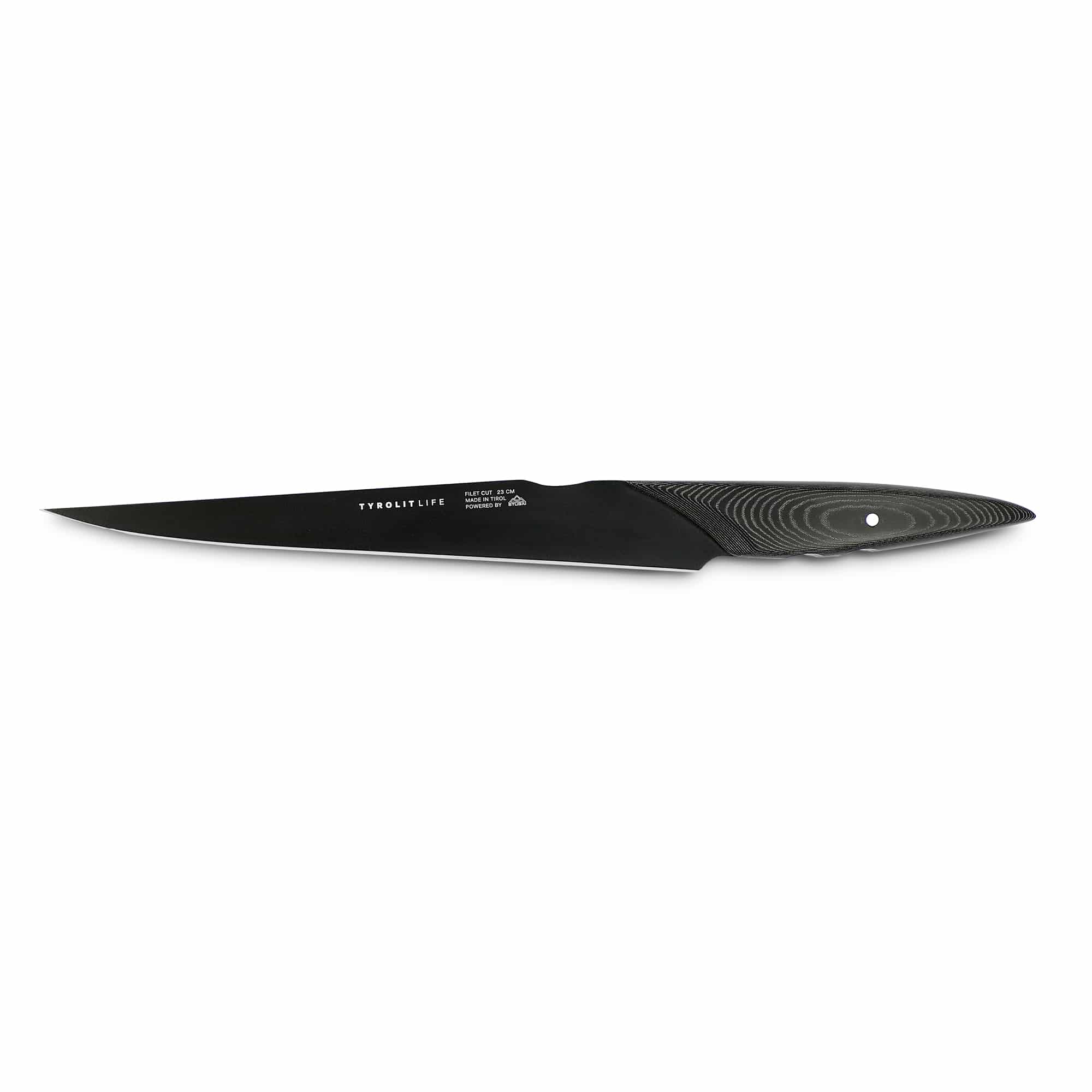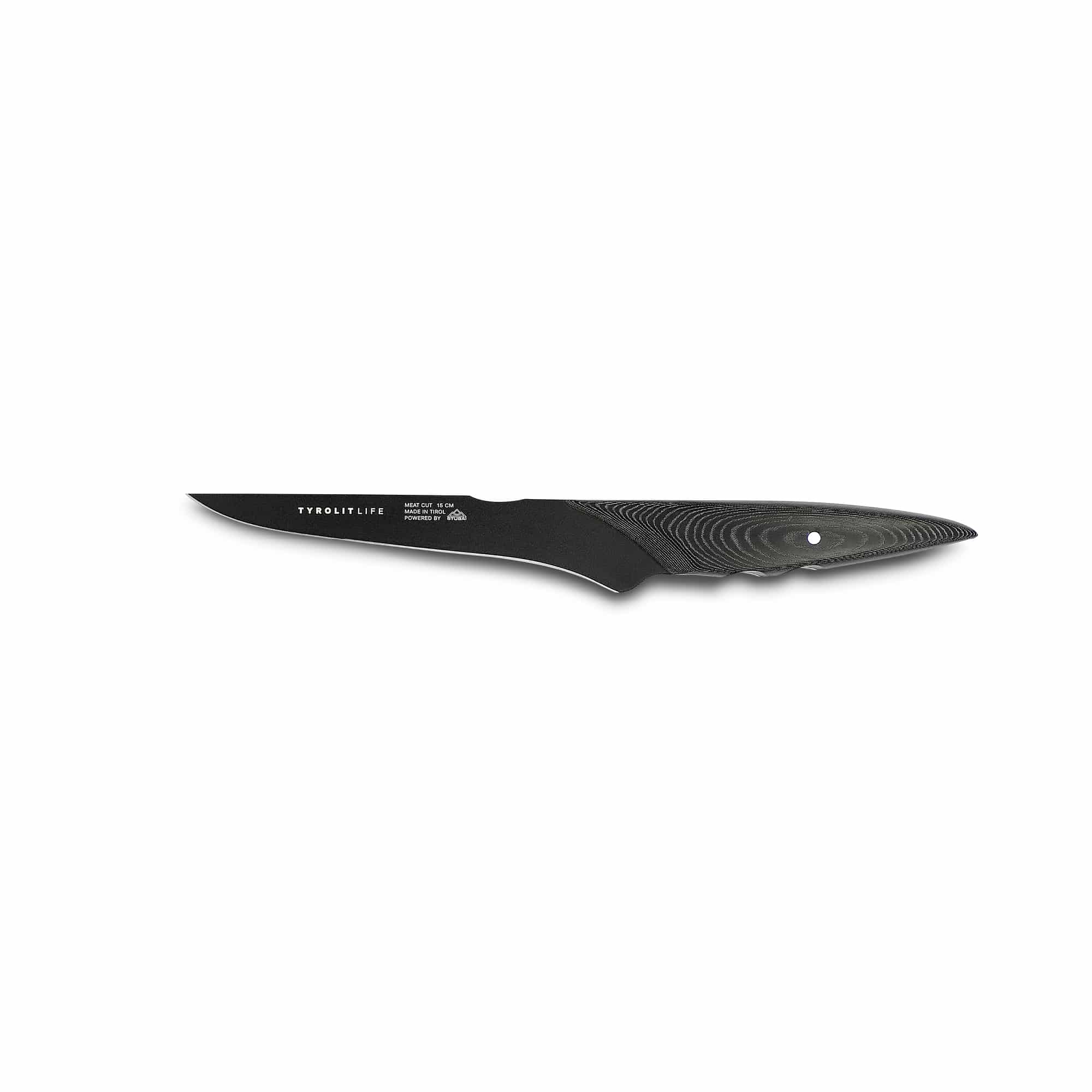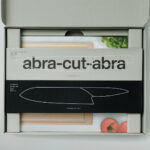Knife: materials and their advantages and disadvantages at a glance
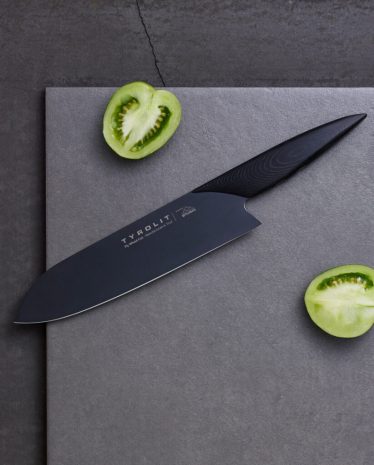
The most important requirements of materials for kitchen knives include performance, durability and ease of care. From the handle to the blade, each material has its own advantages and disadvantages that should be taken into account when choosing a knife.
In this post, we take a detailed look at different materials used in knife making. We shed light on the most common types of steel used in kitchen knives and also look at what materials are used in Tyrolit Life kitchen knives.
Materials for kitchen knives – what influence do they have?
The materials from which kitchen knives are made have a significant impact on their performance, durability and care. From the handle to the blade, the material determines how well the knife cuts, how long it stays sharp, and how easy it is to clean and maintain. The most important criteria include hardness, corrosion properties and strength, which can vary greatly depending on the alloy and processing techniques.
In this section, we look at the most popular materials for knife handles and blades, their specific properties, and their respective pros and cons.
Popular Handle Materials
The choice of handle affects not only the appearance of the knife, but also its handling and durability.
- Wood: Wooden handles are traditional and offer a pleasant feel. However, they are care-intensive and can swell or tear in the event of improper care.
- Plastic: Plastic handles are lightweight, easy to care for and resistant to moisture. However, it is important to pay attention to high-quality workmanship so that its positive properties do not come at the expense of the appearance.
- Metal: Metal handles, often made of stainless steel, are very durable and hygienic. However, they can be heavier and may cause hand fatigue with prolonged use.
- Micarta: A composite material made of canvas, paper or glass fiber soaked in synthetic resin. Micarta is extremely resistant and offers excellent grip, but is more expensive to manufacture.
Knife Blades: What They Are Made of
The blade is the centerpiece, one of the most important parts of a knife. The choice of blade material directly affects cutting performance, sharpness and durability. Common materials are:
- Stainless steel: rust-resistant and easy to maintain, however often not as sharp as carbon steel
- Carbon steel: very sharp and easy to sharpen, but requires more care
- Ceramics: extremely sharp and rustproof, but more prone to breakage and harder to resharpen
- Damask steel: attractive patterning and high sharpness, but often more expensive and requires more maintenance
Knife shapes in and outside the kitchen: What blade shapes are there?
Depending on the intended use, there are a wide variety of blade shapes. In this article, we provide an overview of the most important of these.
Steel grades for kitchen knives
Steel is probably one of the most popular materials for knife blades – but here, too, there are sometimes large differences. These result, among other things, from the exact alloy, the processing and any additives that can further change the properties of a steel.
In principle, it can be stated that a harder steel is not automatically better suited for knife blades – an extremely hard steel, for example, can be more brittle and harder to grind. On the other hand, kitchen knives made of softer steel can quickly become dull in daily use.
Thus, it is at the discretion of the manufacturers to determine and ensure the ideal hardness for their kitchen knives. At Tyrolit Life, for example, we rely on a hardness of 56 HRC for our Iceline knife series and 60 HRC for the Darkline series.
But how do these differences occur? To do this, we need to take a closer look at what common steel grades are used for knives – here are some of them.
Damascus Steel
Damask steel is known for its exceptional sharpness and characteristic patterns. These blades are produced by an elaborate forging process in which several layers of different types of steel are welded, folded and forged together. This process not only produces the distinctive wavy patterns, but also gives the steel its unique properties.
Damascus steel combines the hardness of high-carbon steel with the flexibility of softer steel grades, leading to a blade that is both sharp and durable. This manufacturing process renders the blades long-lasting and resistant to wear and breakage. The final step in production often includes an acid etching process to accentuate the patterns formed from the layering, making these knives highly distinctive but also more expensive and less easy to maintain.
Sandvik steel 12C27 and 14C28N – Swedish steel
Sandvik 12C27 and 14C28N are highly valued steel grades from the Swedish manufacturer Sandvik, known for their balance between hardness, sharpness and corrosion resistance.
12C27 is a martensitic stainless steel that typically achieves a hardness of 54 to 56 HRC. This steel is characterized by high corrosion resistance and good toughness, which also make it attractive for outdoor knives. With a carbon content of 0.6% and 13.5% chromium, 12C27 offers an excellent combination of hardness and corrosion resistance. Knives made of 12C27 steel are easy to sharpen and offer good edge retention.
14C28N is an advancement over 12C27 steel. The increased carbon content of 0.62% along with a chromium content of 14% ensure enhanced hardness and improved corrosion resistance. With a typical hardness of 59 to 60 HRC, this steel boasts exceptional edge retention and sharpness. The addition of nitrogen boosts the wear resistance, making the blade more durable against wear.
1.4116 – Martensitic Stainless Steel
1.4116, also known as X50CrMoV15, is a martensitic stainless steel mainly used in the manufacture of kitchen knives and medical instruments. This steel offers a good balance between corrosion resistance, hardness and toughness, making it an excellent choice for high quality cutting tools.
With a carbon content of 0.45 to 0.55% and 14 to 5% chromium, it has a high corrosion resistance, which is ideal for use in humid environments such as kitchens. The typical hardness of 1.4116 steel is 56 HRC, which ensures good cutting stability without being too brittle. This steel is also easy to sharpen, which makes it easier to care for the knives.
High-end stainless chromium steel
Stainless chrome steel, as the name suggests, contains high levels of chromium, which gives it excellent corrosion resistance. In addition, special alloy additives are often added, which increase the hardness and wear resistance.
Knives made of stainless chrome steel, such as those of the Tyrolit Life Darkline series, achieve a hardness of 60 HRC, which makes for an extremely sharp and durable blade. The blades of the Tyrolean company are also provided with a special coating that minimizes the adhesion of cuttings, which makes cutting more efficient and more pleasant.
High-quality kitchen knives from Tyrolit Life
Tyrolit Life is known for its high-quality kitchen knives with outstanding cutting performance, durability and aesthetic design.
The Iceline knife series utilizes high-quality 1.4116 stainless steel, which undergoes multiple ice-hardening processes to achieve a hardness of 56 HRC. This method enhances the knives' edge retention. The Iceline knives boast an exceptional balance between flexibility and hardness, rendering them perfect for daily use in the kitchen. These knives are also low-maintenance and maintain their sharpness over extended periods, making them ideal for both hobbyist cooks and professional kitchen environments.
The Darkline knife series utilizes a special high-end stainless chrome steel, enhanced with unique alloy additives. These knives attain a hardness of 60 HRC, providing them with exceptional edge retention and durability. The blades are coated with a special layer that minimizes the adherence of food, making cutting more efficient and enjoyable. An additional benefit of the Darkline series is its patented Micarta handle, designed for ergonomic use, ensuring a secure grip whether in wet or dry conditions.
In addition to the high-quality blades, Tyrolit Life also offers practical accessories such as cutting boards and knife blocks with integrated whetstone, which ensure that the knives can always be optimally sharpened and stored safely. Because with regular sharpening of knives and the right storage, their service life can be significantly extended.
The knife sharpeners each have a coarser and a finer grain (400 and 800) to be able to handle both the coarse and fine sharpening of your kitchen knives. The preset sharpening angle of 15 degrees makes it easier to sharpen most European knife types at the correct sharpening angle.
Thus, the kitchen knives from Tyrolit Life offer a perfect combination of innovative technology, high-quality materials and functional design that meet even the highest demands.
FAQs
What materials are kitchen knives made of?
What does the hardness of a knife say about its sharpness?
What are Tyrolit Life kitchen knives made of?

